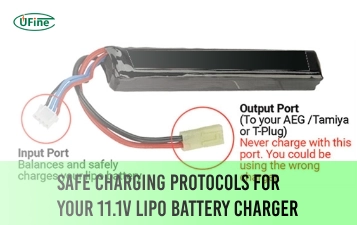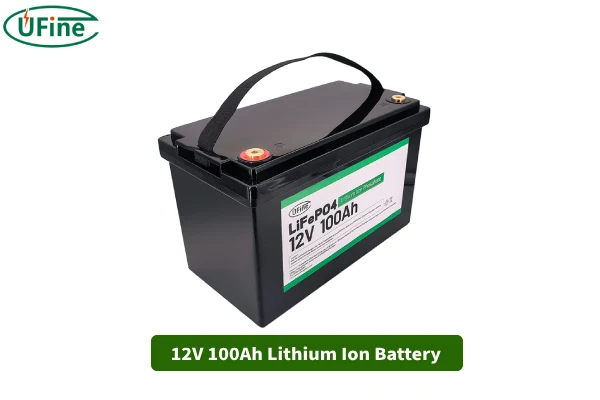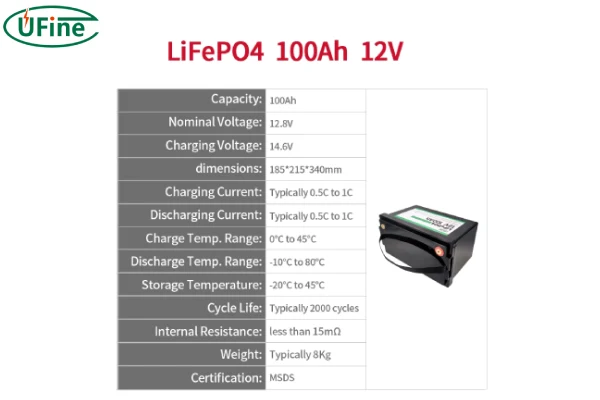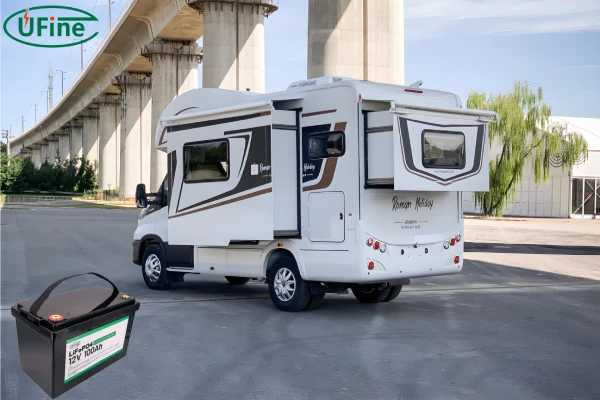If you’ve ever been curious about what keeps your solar setup, RV, or even your boat running smoothly, you’re probably dealing with a battery. But not just any battery—I’m talking about the 12V 100Ah lithium ion battery. This powerhouse is becoming the go-to choice for many applications because of its efficiency, reliability, and impressive lifespan. So, let’s dive in and uncover what makes this battery so special and why it might be the perfect solution for you.
Part 1. What is a 12V 100Ah lithium ion battery?
First things first, let’s break down this technical-sounding term into something more digestible. A 12V 100Ah lithium ion battery is a type of rechargeable battery, but what do each of these components mean?
- 12V (Volts): This stands for the voltage of the battery, which essentially measures the electric potential difference. Think of it as the “push” that drives electric current through your devices. For most consumer electronics and applications, 12 volts is a standard and very practical voltage.
- 100Ah (Ampere-hours): This measures the battery’s capacity. It tells you how much charge the battery can hold. Specifically, a 100Ah battery can deliver 100 amps for one hour, or 10 amps for 10 hours, and so on. This metric gives you an idea of how long the battery can run before needing a recharge.
- Lithium Ion: This refers to the battery’s chemistry. Lithium ion batteries are known for their high energy density, meaning they can store a lot of energy in a relatively small space. They are lighter and last significantly longer than traditional lead-acid batteries, making them a top choice for modern applications.
Part 2. 12V 100Ah lithium ion deep cycle battery
Now, let’s get into a specific type of lithium ion battery: the 12V 100Ah lithium ion deep cycle battery. So, what sets deep cycle batteries apart from regular ones?
Deep cycle batteries are designed to provide a steady amount of power over a prolonged period. They’re not about giving a quick burst of energy; instead, they are built to be discharged and recharged many times. Here are some key characteristics:
- Long Lifespan: These batteries can handle hundreds or even thousands of charge cycles. This means you can use them for many years without needing a replacement.
- Stable Power: They provide consistent power output, which is crucial for sensitive electronics that require a steady flow of electricity.
- Lightweight: Deep cycle lithium ion batteries are much lighter than their lead-acid counterparts. This makes them easier to handle and install, especially in applications where weight is a concern.
- Maintenance-Free: Unlike lead-acid batteries, which require regular maintenance like topping up water levels, lithium ion batteries are virtually maintenance-free. This saves you time and effort over the battery’s lifespan.
Part 3. Why choose the 12V 100Ah LiFePO4 battery?
A 12V 100Ah LiFePO4 battery is a specific type of lithium ion battery. LiFePO4 stands for Lithium Iron Phosphate, and this chemistry offers several unique benefits. Here’s why you should consider it:
- Safety: LiFePO4 batteries are among the safest lithium ion batteries available. They are less prone to overheating and are much less likely to catch fire compared to other lithium ion chemistries. This makes them a safer choice for home and mobile applications.
- Longevity: These batteries have a longer lifespan compared to traditional lithium ion batteries. They can last up to 10 years or more with proper care, making them a cost-effective investment in the long run.
- Efficiency: LiFePO4 batteries charge faster and have a higher discharge rate. This means you can use more of the battery’s capacity without damaging it. They also have a low self-discharge rate, meaning they hold their charge longer when not in use.
- Environmentally Friendly: LiFePO4 batteries are non-toxic and have a lower environmental impact than other battery types. They don’t contain heavy metals like lead or cadmium, making them easier to recycle.
Part 4. Price
When it comes to price, 12V 100Ah LiFePO4 batteries can vary widely. Generally, you can expect to pay between $500 to $1000. The price depends on several factors such as the brand, quality, and additional features like built-in Battery Management Systems (BMS) that protect the battery from overcharging and overheating.
Part 5. Applications
The versatility of the 12V 100Ah lithium ion battery is truly impressive. Here are some common applications where these batteries shine:
- Solar Energy Systems: Perfect for storing energy collected from solar panels, these batteries can help you go off-grid or reduce your electricity bills by storing excess solar power for use at night or during cloudy days.
- RV and Marine Use: Ideal for powering appliances, lights, and other electronics in RVs and boats. Their lightweight nature and high energy density make them easy to install and very efficient.
- Backup Power: Great for home and office backup power systems. They can keep your essential devices running during power outages, ensuring you’re never left in the dark.
- Electric Vehicles: Suitable for small electric vehicles and golf carts. They provide a reliable and long-lasting power source that can significantly extend the range and efficiency of your vehicle.
- Portable Power: Used in portable power stations and camping gear. They’re perfect for providing reliable power in remote locations where traditional power sources are unavailable.
Part 6. Charger
To keep your 12V 100Ah lithium ion battery in top shape, you need a good charger. Here are some common types:
- Smart Chargers: These chargers adjust the charging rate based on the battery’s condition. They prevent overcharging and extend the battery’s life by using algorithms to optimize the charging process.
- Solar Chargers: If you’re using the battery in a solar setup, a solar charger is a must. It converts solar energy into electrical power to charge the battery, making it an eco-friendly and cost-effective solution.
- Multi-Stage Chargers: These chargers go through different stages like bulk, absorption, and float to ensure the battery is charged efficiently and safely. Each stage is designed to optimize the battery’s performance and longevity.
Part 7. 12V 100Ah lithium ion battery factory
If you’re looking for a reliable supplier, look no further than Ufine Battery. Based in China, Ufine Battery is a well-known lithium battery manufacturer that specializes in customizing various types of batteries. Whether you need lithium polymer, LiFePO4, 18650, or cylindrical batteries, Ufine Battery can provide solutions in a wide range of sizes, capacities, and voltages. They pride themselves on delivering high-quality products that meet the specific needs of their clients.
Part 8. Conclusion
So there you have it! The 12V 100Ah lithium ion battery is a versatile, reliable, and efficient power source. Whether you need it for solar energy storage, your RV, or a backup power system, this battery has got you covered. It’s safe, long-lasting, and environmentally friendly. Plus, with manufacturers like Ufine Battery, you can get a customized solution that fits your exact requirements.
If you have any questions or need further information, feel free to reach out.
Related Tags:
More Articles

Safe Charging Protocols for Your 11.1V LiPo Battery Charger
Safely charge your 11.1V LiPo battery by following proper rates, using safety tools, and avoiding common charging mistakes.
11.1 V LiPo Battery Airsoft: Boosting Field Performance
Upgrade your airsoft gun with an 11.1V LiPo battery for faster firing, longer runtime, and top-tier performance on the battlefield.
Batteries for Trolling Motors Lightweight vs. Leaf Blower Power
Explore the best lightweight trolling motor batteries and how they compare to leaf blower power for performance, portability, and runtime.
What Is a 2C Battery?
Learn what a 2C battery is, how C-rates affect performance, and how to calculate the number of batteries your device needs.
What Battery Does LED Strips Use?
Discover which batteries power LED strips best. Learn about voltage, capacity, battery types, and how to safely power your LED lighting projects.






